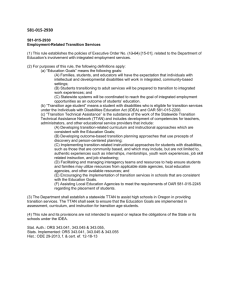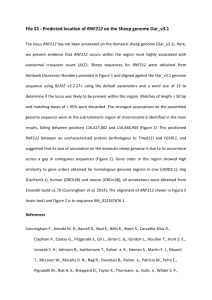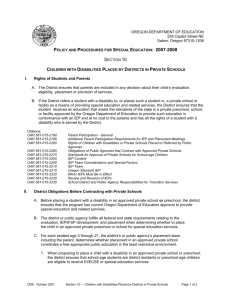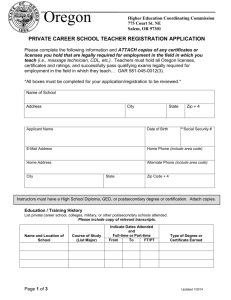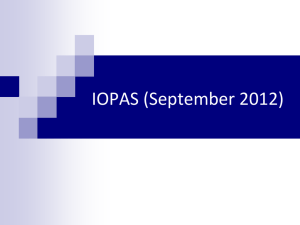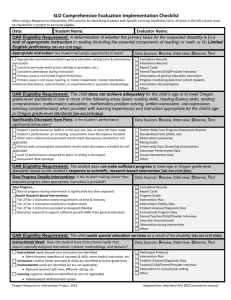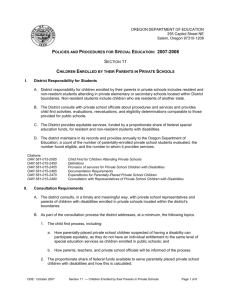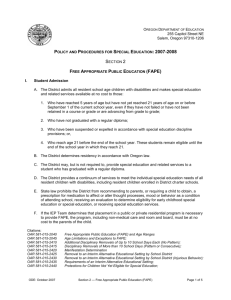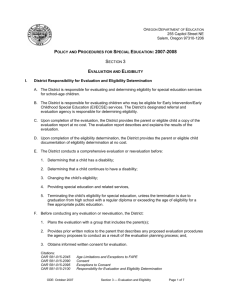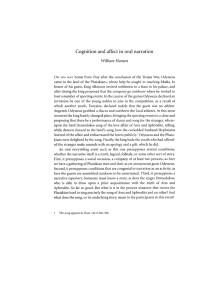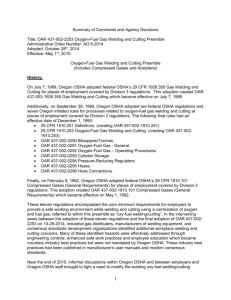Word - Organization for Autism Research
advertisement
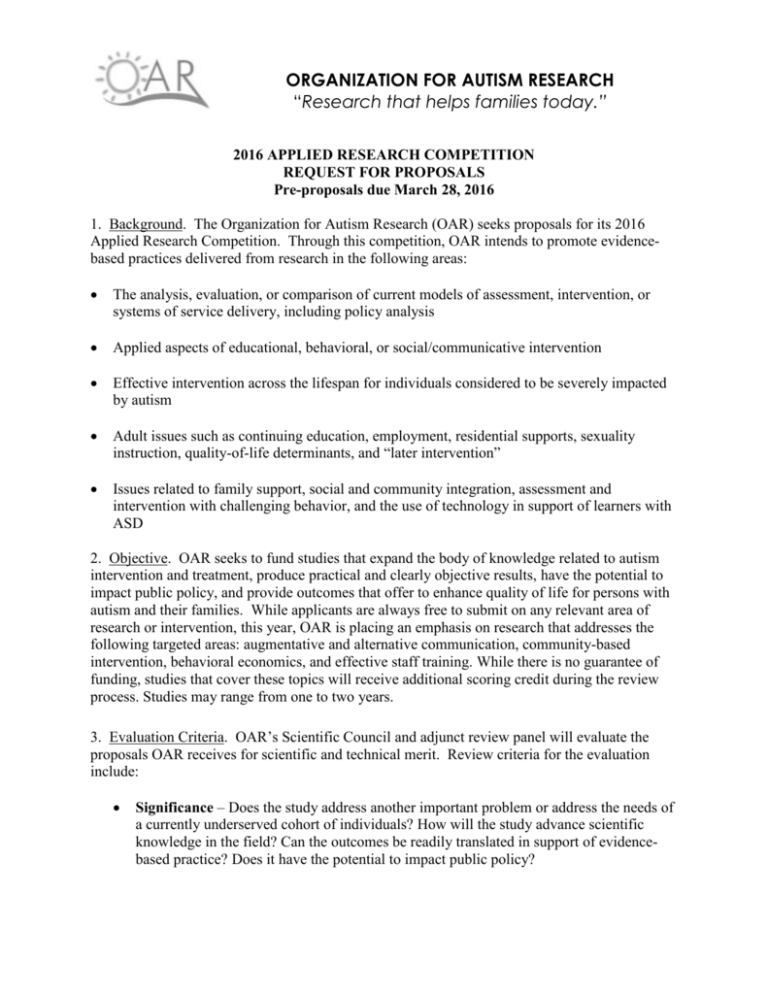
ORGANIZATION FOR AUTISM RESEARCH “Research that helps families today.” 2016 APPLIED RESEARCH COMPETITION REQUEST FOR PROPOSALS Pre-proposals due March 28, 2016 1. Background. The Organization for Autism Research (OAR) seeks proposals for its 2016 Applied Research Competition. Through this competition, OAR intends to promote evidencebased practices delivered from research in the following areas: The analysis, evaluation, or comparison of current models of assessment, intervention, or systems of service delivery, including policy analysis Applied aspects of educational, behavioral, or social/communicative intervention Effective intervention across the lifespan for individuals considered to be severely impacted by autism Adult issues such as continuing education, employment, residential supports, sexuality instruction, quality-of-life determinants, and “later intervention” Issues related to family support, social and community integration, assessment and intervention with challenging behavior, and the use of technology in support of learners with ASD 2. Objective. OAR seeks to fund studies that expand the body of knowledge related to autism intervention and treatment, produce practical and clearly objective results, have the potential to impact public policy, and provide outcomes that offer to enhance quality of life for persons with autism and their families. While applicants are always free to submit on any relevant area of research or intervention, this year, OAR is placing an emphasis on research that addresses the following targeted areas: augmentative and alternative communication, community-based intervention, behavioral economics, and effective staff training. While there is no guarantee of funding, studies that cover these topics will receive additional scoring credit during the review process. Studies may range from one to two years. 3. Evaluation Criteria. OAR’s Scientific Council and adjunct review panel will evaluate the proposals OAR receives for scientific and technical merit. Review criteria for the evaluation include: Significance – Does the study address another important problem or address the needs of a currently underserved cohort of individuals? How will the study advance scientific knowledge in the field? Can the outcomes be readily translated in support of evidencebased practice? Does it have the potential to impact public policy? Approach - Are the concepts, design, methods, and analyses adequate and appropriate? Are potentially confounding variables accounted for? Innovation - Does the project employ novel approaches or methods? Are its aims original? Does it have the potential to advance our understanding of ASD? Investigator - Is the investigator and/or research team appropriately trained and wellsuited to carry out the research? Environment - Does the scientific environment in which the work will be done contribute to its probability of success? Does the work take advantage of any unique features of the environment or employ useful collaborative arrangements? Practical relevance - How relevant is the study and its outcomes to the everyday challenges posed by autism? Does it offer practical findings? Are they generalizable beyond the research setting? Can key components be readily replicated? OAR’s Board of Directors makes grant awards based on these evaluations and the recommendations of the Scientific Council. OAR places special emphasis on studies that will likely produce outcomes that are meaningful to the autism community and have potentially broad application to the practical challenges autism presents. 4. Competition. With this year’s competition OAR will consider awarding up to 8 grant awards for $30,000 each. Pre-proposals are due by March 28, 2016. OAR will invite full proposals from selected pre-proposals in June 2016, complete the final review in October 2016 and notify grant recipients in November 2016. 5. Information for All Applicants on Uses of OAR Funds. Even though OAR does not require a budget for the initial application, questions regarding OAR’s funding policies often arise when prospective researchers initiate a grant proposal. All applicants should review OAR’s funding guidelines before applying for a grant. The guidelines are posted on OAR’s Web site. 6. Overview. The application and review process will proceed in two distinct phases: (1) open application and initial review and (2) invited proposals for final review. a. Open Application and Initial Review During this period, OAR will accept pre-proposals prepared in accordance with the following guidelines. Interested researchers must submit pre-proposals via OAR’s online application no later than Monday, March 28, 2016 at 11:59pm EST. Screening and review will begin immediately following the closing date. The objective of the initial review process is to identify those proposed studies which best meet the criteria described above; those studies will then advance to the full proposal phase. OAR will notify all applicants of the results by June 2016. b. Final Review Once the initial review is complete, OAR will invite those researchers whose pre-proposals are selected for further review to submit full proposals. Full proposals will be accepted between June 8, 2016 and August 8, 2016. OAR’s Scientific Council will commence the final review at its annual meeting in October. OAR’s Board of Directors will meet at the same time, receive the report and recommendations of the Scientific Council, and approve grant awards for this year. OAR will notify awardees during November 2016 and funding will begin on or after January 1, 2017. 7. Online Application Process. This application is available online at https://app.wizehive.com/apps/oarapplied2016. Due to the increasing number of applications OAR receives each year, compliance with all administrative requirements is essential. For a more detailed description of what is required in the pre-proposal, please refer to the online application. Overview of the Pre-proposal. The pre-proposal is a scaled-down version of the full proposal and focuses primarily on the study’s topic, design, methodology, and expected outcomes. a) Cover Letter. b) Pre-proposal. The following items are required in the pre-proposal: o o o o o o Title Background Methodology Evaluation/Data Analysis Outcome Recommendations Biographical Information For more information, contact Kimberly Ha at OAR: (703) 243-9762, or send an e-mail to kha@researchautism.org.
